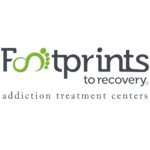Alcohol poisoning kills six people every day and chronic heavy drinking kills 261 people a day according to the CDC. Also known as alcohol overdose, alcohol poisoning began making headlines in the 1990s when reports began surfacing of college students dying from excessive drinking during fraternity hazing. Some may find it surprising that most people who overdose on alcohol are well beyond college age. In fact, 76% of deaths due to alcohol poisoning occur in people ages 35-64. No matter your age, if you abuse alcohol, you’re at risk for alcohol overdose and certain factors may make you more at risk than others.
If you’re a heavy drinker or if you have a loved one who struggles with alcohol consumption, understanding the signs, causes, and dangers of alcohol overdose is important.
What Are the Signs of Alcohol Poisoning?
Alcohol poisoning happens when you drink excessive amounts of alcohol during a short period of time. Your liver can’t process alcohol at the same speed you’re drinking it. This causes toxic alcohol levels in the blood. At this point, alcohol finds its way to other areas of the body. Parts of the brain that control functions like temperature, breathing, and heart rate begin to shut down. This causes several dangerous complications.
Signs and symptoms of alcohol poisoning include:
- Unconsciousness
- Slow or irregular breathing
- Pale, bluish, or clammy skin
- Low body temperature
- Vomiting
- Confusion
- Seizures and convulsions
- Extreme loss of coordination
- Loss of gag reflex
- Cardiac arrest
How to Help Someone With Alcohol Poisoning
Alcohol poisoning is serious and can lead to organ damage and death. If someone you’re with is showing alcohol poisoning signs, call 911 immediately. The emergency medical team will ask if you know:
- How much the individual drank.
- What kind of alcohol they were drinking.
- If they were using other substances while drinking alcohol.
While you wait for emergency personnel, try to keep the person awake and sitting up. If you can’t keep them sitting up, put them in the recovery position, on their side with their head turned. This can prevent choking on vomit. If they stop breathing, perform rescue breathing.
Things like drinking coffee, putting them in a cold shower, or letting them “sleep it off” won’t work, and could make things worse. Letting someone sleep it off is one of the biggest dangers of alcohol poisoning because they can stop breathing due to depressed respiratory functions or choke on their tongue or vomit.
What to Do if You Have Alcohol Poisoning
Unfortunately, the symptoms of alcohol poisoning make it nearly impossible to help yourself if it’s happening to you. When you’re at that level of intoxication, you likely won’t have the wherewithal to notice warning signs before you pass out or become delirious. If you have excessive vomiting while drinking or other worrisome effects, it’s always best to get professional medical attention in case things get worse.
If you overdose on alcohol, the best you can hope for is that someone else will be there, recognize you need help, and call 911. If you’ve experienced alcohol poisoning, take it as a red flag that you need help with substance abuse.
Long-Term Effects of Alcohol Poisoning
An alcohol overdose can impact the brain and heart. Vomiting can cause dehydration. This throws off your electrolyte imbalance which can lead to heart attack and stroke.
Alcohol’s effects also slow down your central nervous system, which impacts several functions. A common risk of alcohol and drug overdoses is suppressed breathing. When oxygen flow is cut off from the brain, you are at risk for permanent brain damage. Seizures are another symptom of alcohol poisoning that can damage your brain.
When Does Alcohol Poisoning Happen?
Binge drinking over a short period of time increases your risk of alcohol overdose. Binge drinking is defined as .08% blood alcohol content (BAC) or higher. This typically comes out to:
- Four or more alcoholic drinks for women over a two-hour period.
- Five or more alcoholic drinks for men over a two-hour period.
According to The National Institute on Alcohol Abuse and Alcoholism, you’re at high risk for alcohol overdose when your blood alcohol level (BAC) hits .16% or more. If your alcohol level reaches 0.40% you are in danger of serious consequences like brain damage or death. Keep in mind that BAC alcohol-poisoning levels aren’t one size fits all. These are only benchmarks. It may take more or less drinks for alcohol’s effects to become dangerous to you depending on factors like:
- Weight
- Age
- Pre-existing conditions
- Physical health
- How much you’ve eaten
- Your alcohol tolerance
Get Help for Alcohol Abuse
If you’ve overdosed on alcohol, you’re likely drinking too much alcohol on a regular basis. Alcohol use disorders don’t get better on their own. There are reasons behind your alcohol addiction that you need to address. Otherwise, you’ll continue to drink alcohol to numb emotional pain. We can help with that. Sometimes issues like trauma, co-occurring mental health disorders, and early relationships fuel alcohol and drug abuse. We’ll help you address these issues in a safe, accepting space where you can begin healing from them. You’ll also learn better ways to cope with triggers that have led to alcohol abuse.
Our treatment program includes:
- Drug and alcohol detox
- Inpatient rehab
- Outpatient rehab
- Dual diagnosis treatment
- Sober-living residences
You’ll take part in a blend of traditional and experiential therapies and begin building a strong support system in recovery.
We’re here 24 hours a day. Reach out for a free, confidential consultation.




